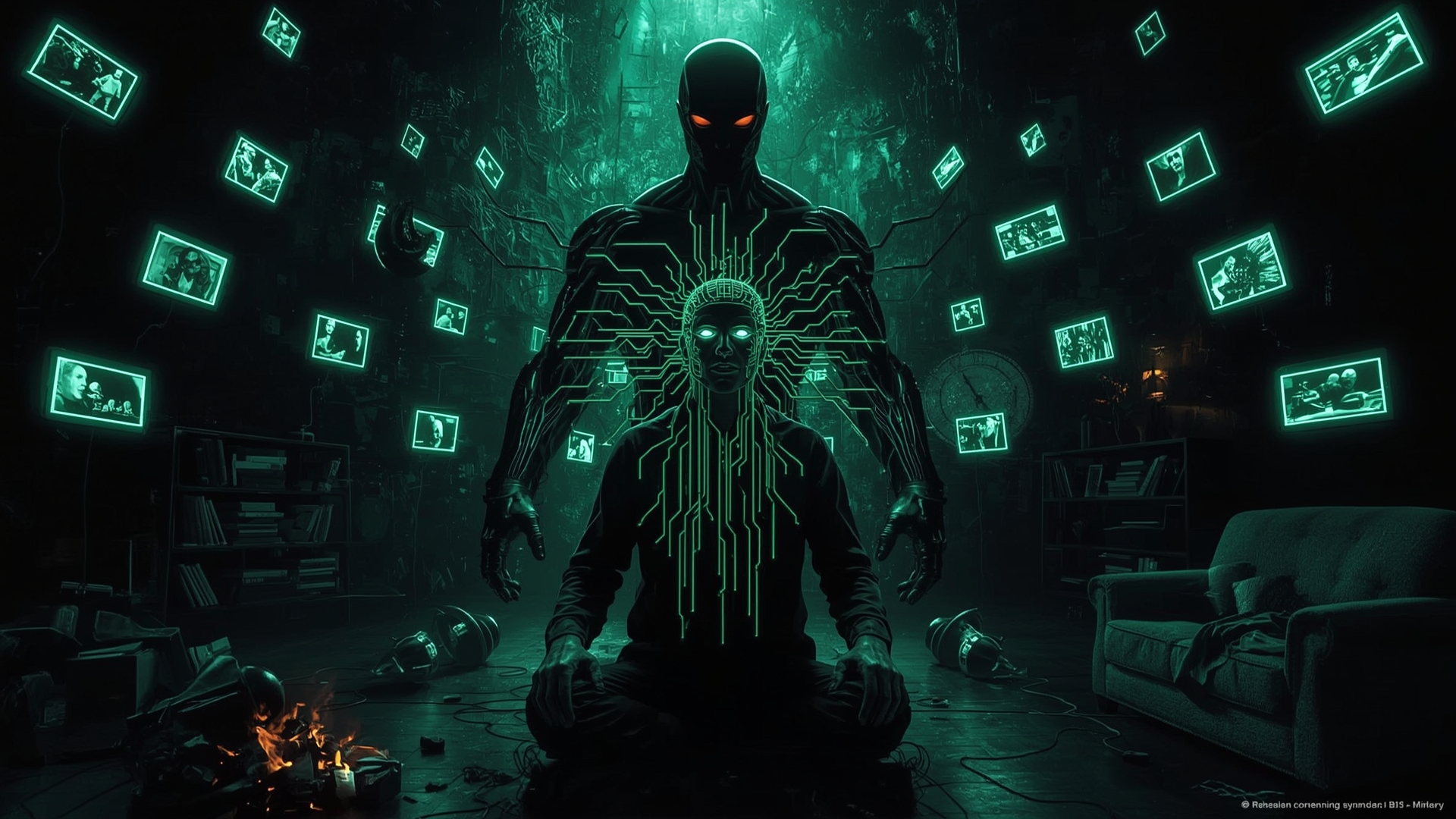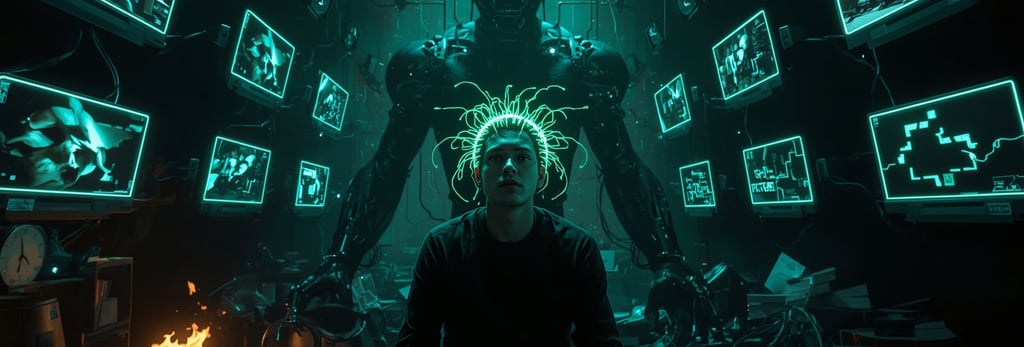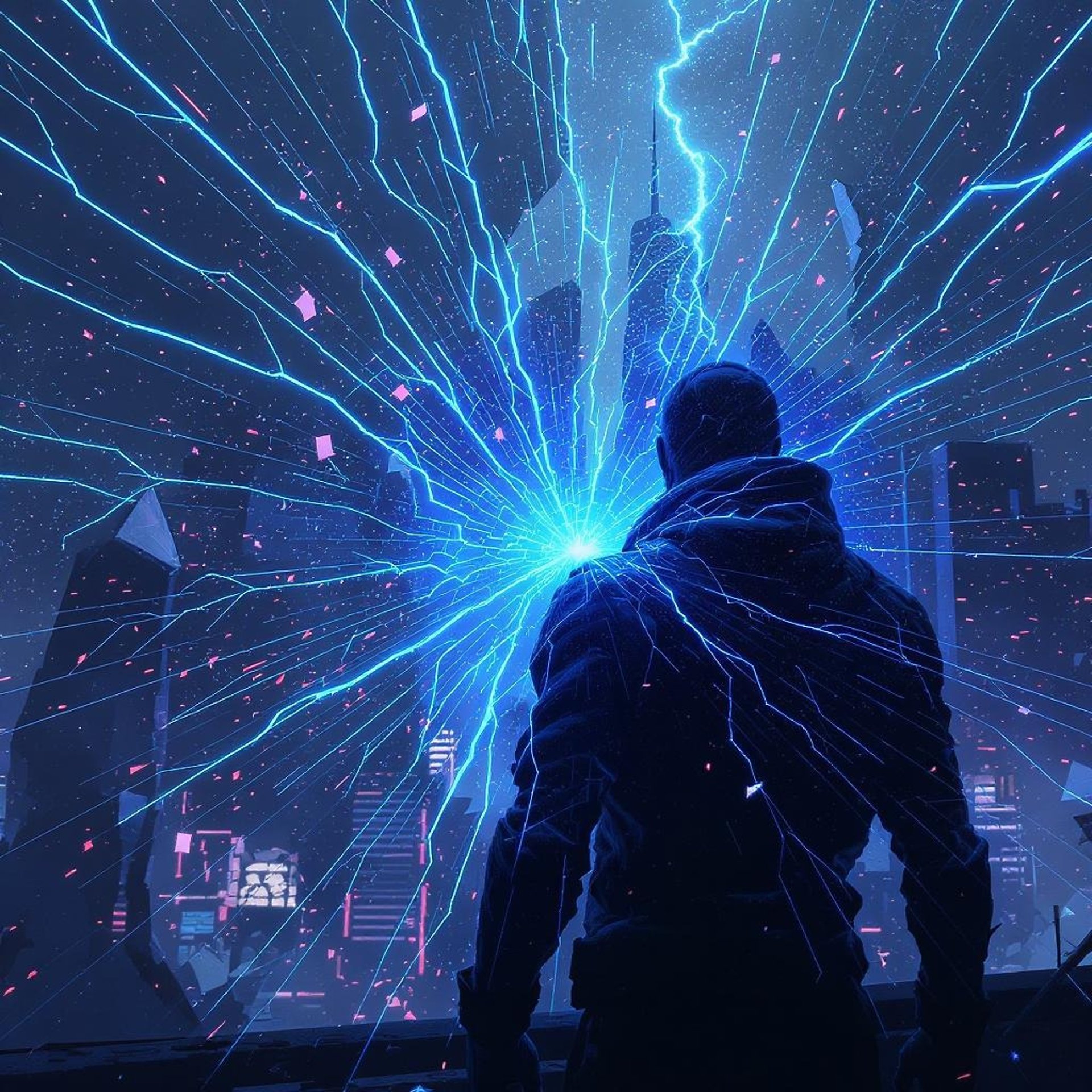
AI and the Collapse of Imagination: How the Attention Economy Is Killing Creativity
Explore how reliance on flawless AI‐generated content and the dominance of bite‑sized videos in today’s attention economy lead to a crisis of imagination, stifle real creativity, and reshape the entertainment industry.


“Imagine a world where you can’t daydream, can’t get bored enough to invent, can’t think beyond the next dopamine hit.”
— Mr Influenciado, reflecting on our AI‑driven age
In a few scrolls, we’ve replaced boredom with endless micro‑stimuli. But without tedium, creativity withers. This article dives deep into how perfect AI answers, the “culture of efficiency,” and bite‑sized videos erode our imagination—and why you should care before your next scroll.
The Collapse of Imagination: Dependence on Perfect Answers
In an era where every question yields a perfectly crafted AI response within seconds, something ancient and deeply human begins to erode: the struggle to not know — the awkward silence where creativity is born.
We’ve replaced uncertainty with automation.
We’ve traded exploration for optimization.
AI systems like ChatGPT, Bard, and Claude are trained on billions of data points — a statistical average of all human knowledge. But therein lies the problem: what is average can never be revolutionary. When we lean too heavily on these tools, we begin to mirror their limitations. We settle for what's already been said. We stop searching for what hasn’t.
Psychologists have long emphasized the importance of “cognitive friction” — the discomfort of not knowing, the time spent in ambiguity, the playful failures and mental wanderings that fuel creative breakthroughs. It's boredom that leads a child to invent a game out of shadows on the wall. It's frustration that pushes a writer to find a phrase that’s never existed. It's silence that gives space for ideas to bloom.
AI, when overused, interrupts that process. It eliminates the need to wander. The temptation is too strong: Why struggle to create when I can prompt something perfect in seconds?
But here’s the cost:
When you no longer tinker, you no longer imagine.
When you no longer imagine, you no longer create.
And when you no longer create, you no longer evolve.
This isn’t just a philosophical fear — it’s visible in the cultural copy-paste we now consume daily:
The same TikTok hooks.
The same YouTube intros.
The same “Top 5” lists, tweets, aesthetics, even AI-generated art.
The internet has become a hall of mirrors, endlessly reflecting back our own expectations. And we’re losing the grit — the cognitive calluses — that come from grappling with the unknown.
Even Business Insider noted in a recent feature:
“As we offload more cognitive work to machines, our ability to imagine from scratch may atrophy. AI gives us polished answers — but never the messy, vital, imaginative struggle that makes creativity real.”
Uma pesquisa da MIT Media Lab revelou que usuários frequentes do ChatGPT exibem níveis significativamente menores de atividade cerebral, indicando menor engajamento cognitivo Reddit+5High Flying Design+5Times of India+5.
A study by MIT’s Media Lab found that frequent ChatGPT users showed significantly reduced brain activity, indicating lower cognitive engagement.
In an article for Psychology Today, researchers warned:
“Cognitive offloading shrinks mental muscles.”
We’re training ourselves to not think, to reach for the perfect suggestion instead of struggling through the process.
Expert Perspectives on the Imagination Crisis
Pete Docter, Chief Creative Officer at Pixar, called AI:
“The least impressive blah average of things,”
warning that it produces well-made, but lifeless and shallow work.
Robert Sternberg (Cornell) and Louisa Dahmani (MassGeneral) argue:
“With creativity, if you don’t use it, it starts to go away.”
Tools like GPS and generative AI are making us cognitively lazy.
In the Wall Street Journal, journalist Joanna Stern shared her own experience:
“I realized AI was making me stupid… and that terrified me.”
It’s not that AI is bad. It’s that our overdependence on seamlessness is draining our mental muscles.
The irony? We are using the most powerful imagination machine ever built… to stop imagining.
To let it think for us. To fill every silence. To kill every pause.
And in doing so, we're not just collapsing the boundaries of what’s possible — we’re flattening them completely.Relying on AI for every answer is like swimming in shallow water — it’s safe, but you’ll never reach depth. True creativity comes from wrestling with the unknown, from imperfect ideas that evolve through challenge.
Avoiding that discomfort and jumping straight to polished outputs robs you of the journey, the very thing that gives your voice substance.
Learning to co-create with AI — without silencing your own cognitive chaos — is essential. Because only through flawed, wandering thought can something truly new emerge.
That is the core of human imagination.
The Efficiency Culture and the Illusion of Productivity
We live in a culture that glorifies speed, optimization, and measurable output — where time not spent producing is labeled as wasted. In this hustle-driven environment, AI is hailed as the ultimate tool for hyper-productivity: faster scripts, automated video edits, frictionless ideation, pre-written hooks, instant templates. Everything built to do more, faster.
But what if this race for efficiency is rotting us from the inside out?
Artificial Intelligence is now embedded into our daily routines like a silent productivity drug — eliminating blank pages, silencing the struggle to start, smoothing out rough drafts. On the surface, it’s empowering. Beneath that surface, something vital is disappearing: the unscripted moments, the mental stillness, the unpredictable collisions that creativity thrives on.
We’ve automated the chaos out of the process.
We’ve sterilized the silence.
And in doing so, we’ve begun to confuse movement with progress, output with impact.
The Tyranny of Metrics
In the AI era, creators and professionals alike are driven by dashboards and KPIs. Views, likes, retention time, CPM, completion rate. Everything is measured, everything is ranked. The result? We no longer create to explore — we create to satisfy the algorithm.
We optimize for virality, not value.
This mindset is what Cal Newport (author of Deep Work) calls “shallow productivity” — activity that looks impressive but lacks depth, originality, or transformative power.
The Death of Free Time
What once was leisure time — a space for wandering thoughts, creative boredom, and play — is now colonized by content batching, AI content schedules, and monetization strategies. AI doesn’t just fill time. It replaces it with productive time — erasing the psychological buffer needed for real innovation to emerge.
A study by the University of Oxford found that overuse of productivity AI tools correlates with a 31% drop in spontaneous ideation among knowledge workers. Why? Because constant efficiency kills the mental drift zone where ideas organically form.
A Machine’s Rhythm Is Not a Human Rhythm
AI doesn’t need sleep, nor rhythm, nor emotion. But humans do. When we force ourselves into the machine’s tempo, we fracture something sacred in the creative cycle — the ebb and flow, the inhale and exhale of inspiration.
Instead, we chase perpetual output — and in doing so, we burn out.
A Culture Addicted to Busyness
We praise the creators who upload daily. We glorify the "grindset." But we rarely ask: Productive for what? Efficient toward what end?
The obsession with content creation over content reflection is creating a generation of digital workers trapped in an endless loop of shallow iteration, optimized for clicks, but starved of soul.
